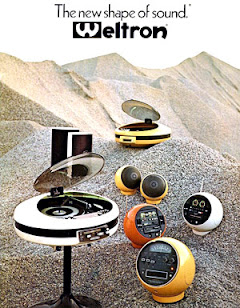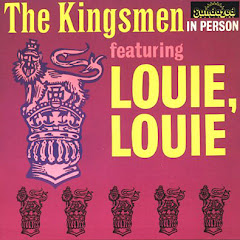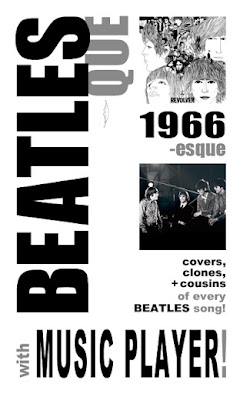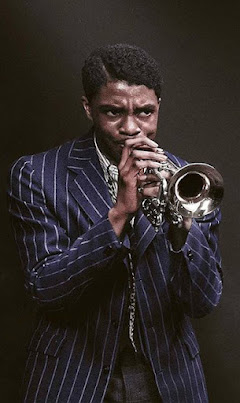(Part 1 of 7 decades)
now brings you the actual, all-inclusive history of Rock'n'Soul music, with Music Players.
▶ Music Player Checklist
WOMEN OF ROCK:
1950s
#1 of 7
every decade of the Women Of Rock,
from the 1950s to today!
Learn the real and inclusive history
you've never heard!
Shortcut links to Music Players:
• Women Of Rock: Roots 1920s-'40s
• Women Of Rock: 1950s
W O M E N
O F
R O C K:
Roots 1920s-'40sWomen Of Rock: Roots 1920s-'40s
This Music Player covers Blues, Country, Gospel, and Jazz sounds that led to Rock'n'Roll, from the 1920s through 1949, in chronological order.
Rock'n'Roll has many parents.>
Culture isn't constant or owned by a pure group. Culture is constantly renewing itself through everyone; it is simply human creativity moving fluidly beyond any delusions of division or difference.
Culture is an intersection of ideas. We refract everything we've taken in. From each other, with each other, for each other.
The many roots that entwine into the evolving trunk of Rock'n'Roll include string structures from Classical, rawboned guitar from Blues, the gallop of Country, jumping chorals from Gospel, heart tales from Folk, brash thrust from Mambo, horn blasts from Swing, greasefire from Bluegrass, the jaunty pep of Cajun, and the evening glow of Torch Song pop.
Women were innovators from the beginning of the recording industry.
Phonographs brought the world of music into the home in the 1920s and Blues music first lit imaginations and charts with the success of Bessie Smith. Everyone had always played instruments, and from the beginning there were female guitarists. Mother Maybelle Carter of The Carter Family innovated a new playing style that shifted guitars from a rhythm instrument to a lead in their Country sides, and Memphis Minnie recorded the original Blues version of "When The Levee Breaks". Sister Rosetta Tharpe combined Gospel zeal with Blues kick, justly earning historians' credit as the Godmother of Rock'n'Roll.
The Boswell Sisters focused Jazz into tight chorals for the radio with tunes like "Rock And Roll" (1934), followed by The Andrews Sisters swaying the Swing into the War '40s. The cosmopolitan International Sweethearts Of Rhythm orchestra belted it 8-to-the-bar with the best. After the War, as orchestras pared to combos, Ella Rae Morse and Dinah Washington lit the sultry Torch in nightclubs and car radios.
Culture is a tryst and shout from everyone, for everyone. Let's rock!
W O M E N
O F
R O C K:
1950sWomen Of Rock: 1950s
Hear the unlimited Playlist here.)
This Music Player covers the original women of Rock'n'Roll worldwide, from 1950 through 1959, in chronological order.
Jump Jive! Country Boogie! Gospel!
Rockabilly! Doo Wop! World!
Women have been part of every cultural movement since the beginning. If any source tells you different, they are biased
or unaware. This comprehensive Music Player dissolves all of that completely, giving proper due.
Women were always a part of Blues, Country, Swing Jazz, Jump Jive, Gospel, and Mambo, and all of these sounds rolled right into Rock. When anyone says women were rare in Rockabilly, they're flat wrong: thousands of women took as many stabs at fame through indie-pressed '45s as men, as often as they could force their way in. But biased men at the time often blocked their entry, or marginalized their chances, and maintained the cartoon history of his-story-without-her, echoed ever since for generations with rote ignorance.
It's only recently that you hear about Rockabilly queens like Wanda Jackson, and perhaps Janis Martin and Sister Rosetta. But there were legions more, as varied and vital as their brothers.
Annisteen Anderson.
Many women broadcast the Rock'n'Roll songbook first, like Big Mama Thornton's "Hound Dog" (1953), Big Maybelle's "Whole Lotta Shakin' Goin' On" (1955), and Annisteen Anderson "Fujiyama Mama" (1955). ("Hound Dog", the first hit standard penned by Lieber & Stoller, was also quickly interpreted by Esther Phillips and country filly Betsy Gay, well before Elvis.)
Gospel fretted over everyone's soul in these years, with admonishments from Marylin Scott and ambivalence from Lou And Ginnie. But the walls of Jericho couldn't hold back synthesis. Faye Adams' "Shake A Hand" strolls Gospel vocals over New Orleans barrelhouse piano before Fats Domino. And Sister Rosetta Tharpe's vibrant take on the spiritual "99 1/2 Won't Do" anticipates Wilson Pickett's secular rewrite by a decade.
Gleefully, many 1950s women embraced "sins" like sex as a virtue of life that should instead be enjoyed and expressed honestly. Listen to how LaVern Baker converts Gospel guilt into rapt pleasure with "Soul On Fire" ("and I really had my fun"). Others went full-tilt and forthwith, like Julia Lee's impatiant "Gotta Gimme Whatcha Got", Esther Phillips' pouting "I'm A Bad, Bad Girl", Dorothy Ellis' emphatic "Drill Daddy Drill", and Dinah Washington anxious for the "Big Long Slidin' Thing".
Rock'n'Roll had always been a euphemism for sex, with its namesake music naturally rolling every pelvis precisely like Elvis Presley. It takes two to tangle, and tying the naughty chords are Barbara Pittman's brazen "I Need A Man", Janis Martin's point-blank "Bang Bang", Bonnie Lou's brisk "Friction Heat", and Lorrie Collins' flustered gratitude in "Mercy". And John And Jackie's fervidly lascivious "Little Girl" will still make anyone blush.
Straight up, Rock'n'Roll and Rhythm & Blues were the same music at the start, given separate names just to segregate the audience. But looking past face value (ahem) and just listening, your heart and hips know it's the same party. Ruth Brown declared "This Little Girl's Gone Rockin'", Shirley And Lee are correct that "Everybody's Rockin'", and LaVern Baker belts true-blue Rock through and through in "Voodoo Voodoo".
This is our party and everyone is invited, through the front door.
Eddie Cochran on tour (1957).
Rock'n'Roll is a pantheon with no leader where all rock and everyone rules.
Just as there is no central king there is no single queen. Before it were regal rebels like Charlene Arthur clanging the honky tonks while Big Maybelle jumped up the jooks. Joining Wanda and Janis were new heirs to the queendom like Jean Chapel, Ruth Brown, Alis Lesley, Etta James, Sparkle Moore, and Annisteen Anderson.
Reality is hybrid and creativity is fluid. Listen to how Mambo swayed rockers like Georgia Gibbs, Fay Simmons, and Tiny Topsy. And how The De Castro Sisters, Marga Benitez, and Gloria Rios ("El Relojito/ Rock Around The Clock"; Mexico, 1956) rocked the rhumba. Then tilt to the lilt between Celia Cruz's "Baila El Rock & Roll" (Cuba) and Eartha Kitt's "Honululu Rock And Roll".
Rock'n'Roll was almost instantly an international scene, unleashing rockin' women like Amy Anahid, Magali Noel, and Caterine Caps (France); Renee Franke, Hannelore Cremer, and Conny Froboess (Germany); Towa Carson and Rock-Olga (Sweden); The Butterflies and The Fouryos (Netherlands); Alma Cogan (Britain), Hermanas Serrano (Spain), Celly Campello (Brazil), Elena Madera (Cuba), Cherry Wainer (South Africa), and Mina (Italy).
Rock impresarios tried to weed female musicians out and doll them up front, but The Chantels were a full band playing their own instruments. Guitarists held their own like Ella Baker, Elizabeth Cotten, Odetta, and the aptly-named Bonnie Guitar. Listen to the duelling Mickey And Sylvia take your head clean off with the brutal instrumental "Shake It Up", or Big Maybelle or Laura Lee Perkins pounding the ivories, or organist Cherry Wainer's "Cerveza". Carol Kaye began her recording career playing guitar on Ritchie Valens' "La Bamba" and Chris Montez's "Let's Dance" before becoming the stellar bassist for The Wrecking Crew session mob.
Retroactive terms like Doo Wop and Girl Group later falsely segregated our perceptions, but in the true reality, it was all '50s Vocal Pop with familial variety; besides the famed male ensembles, there were male-and-female combos (The Platters, The Fleetwoods, The Six Teens, The Skyliners, The Orlons, The Ad Libs, The Demensions, and the boldly-integrated The Crests), and all-female groups like The Chordettes ("Mister Sandman"), The Pre-Teens, The Teen Queens, The Cookies, and The Debs. It spanned the world in songs like Hermanas Navarro's early cover of "Sh Boom (Cancion Pop)" (Spain, 1953) and Los Cinco Latinos' "Mi Oracion (My Prayer)" (Argentina, 1956). And The Storey Sisters' hilarious "Bad Motorcyle" (1958) practically invents Girl Group biker songs years ahead.
Country brought in kick from country swing, hillbilly boogie, and bluegrass. The Davis Sisters' (featuring young Skeeter) lip at a ferocious clip in "Rock A Bye Boogie" (1953), belting out Rockabilly's template years before the Johnny Burnette Trio. The Miller Sisters' "Ten Cats Down" hits the high lonesome harmonies before The Everly Brothers. Rose Maddox always swiped the spotlight from the clowny Maddox Brothers. The plucky guitars on Boots Collins' "Mean" (1956) sound for all the world like Merseybeat come early. The Collins Kids, Lorrie and Larry, were dervishes bashing guitars. And Dolly Parton began her career with "Puppy Love".
Electronic music was already beginning as Bebe and Louis Barron (France) created the entire soundtrack for FORBIDDEN PLANET (1956) out of tape loops and tone modulations.
Jazz vocalese and torch kept pace with the Rockin' upstarts, with Annie Ross' freewheelin' "Twisted" (later covered by Joni Mitchell), Keely Smith's flip sass on Louis Prima's "The Lip", and Peggy Lee's cool jazz tranformation of Little Willie John's fiery "Fever".
And, as the Music Player closes, you can already hear the first waves of Surf> in 1959 songs like The Delicates' "Black and White Thunderbird", The Darby Sisters' "Go Back, Go Back to Your Pontiac", June August's "What Does A Lifeguard Do In The Fall?", and Jo-Ann Campbell's "Beachcomber".
Janis Martin.
Rock'n'Roll started with hundreds of female acts, and this became rapidly exponential with each decade.
As this series of Music Players will prove, they dominoed every decade through the '60s, the '70s, the '80s, the '90s, the '00s, and the '10s.
We've had enough of his story, so let's widen the world with the history of her story.
Next:
Women Of Rock: The 1960s
© Tym Stevens
See Also:
Part 1 (of 2):
• YOU DON'T OWN ME: The Uprising of the 1960s GIRL GROUPS
Part 2 (of 2):
• SHE'S A REBEL: Decades Of Songs Influenced By The GIRL GROUPS
• Women Of Rock: The 1960s (2 Music Players)
Coming:
• Women Of Rock: The 1970s (2 Music Players)
• Women Of Rock: The 1980s (3 Music Players)
• Women Of Rock: The 1990s (2 Music Players)
• Women Of Rock: The 2000s (2 Music Players)
• Women Of Rock: The 2010s (2 Music Players)
• The Real History of Rock and Soul!: A Music Player Checklist













































































































































